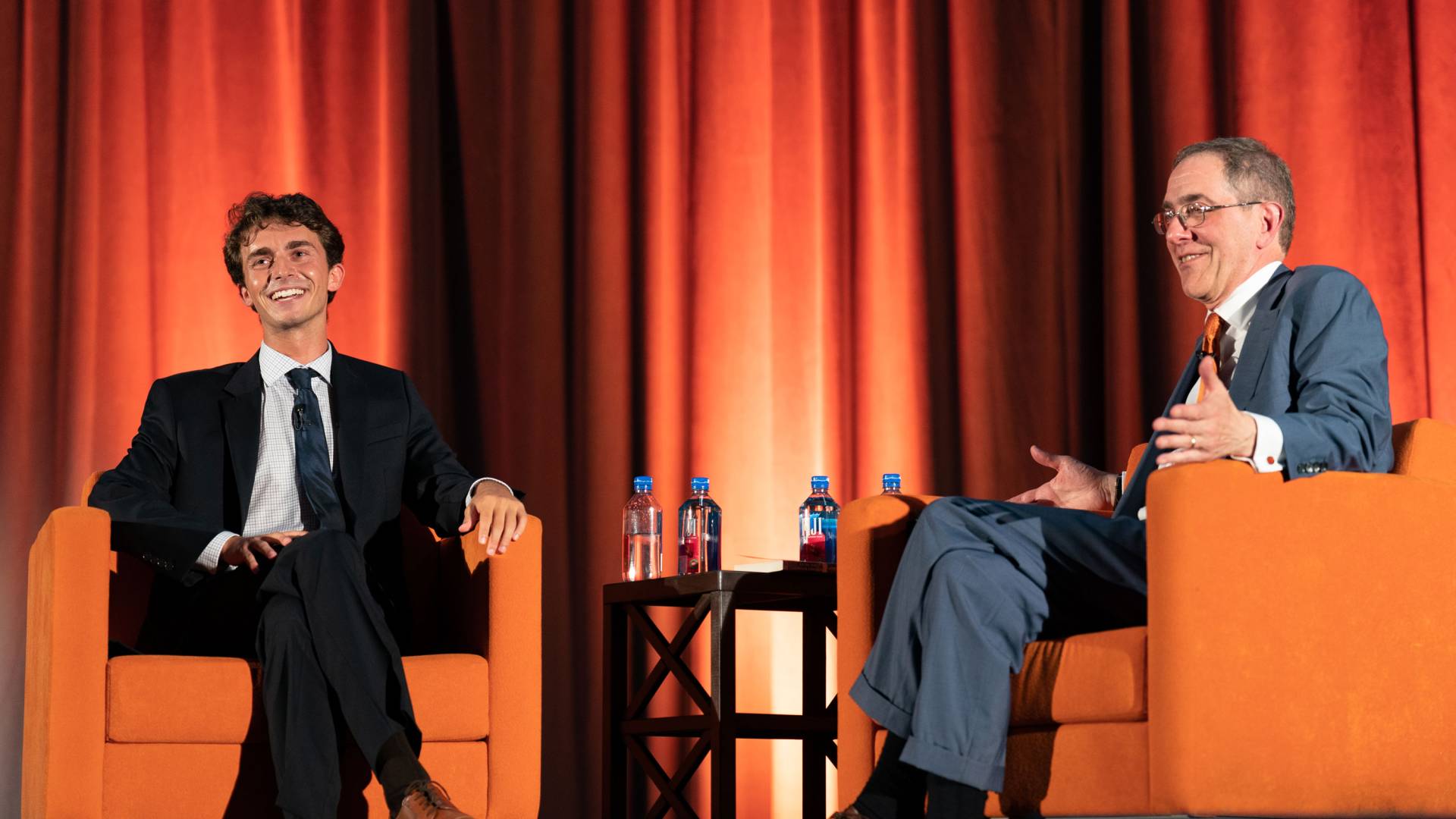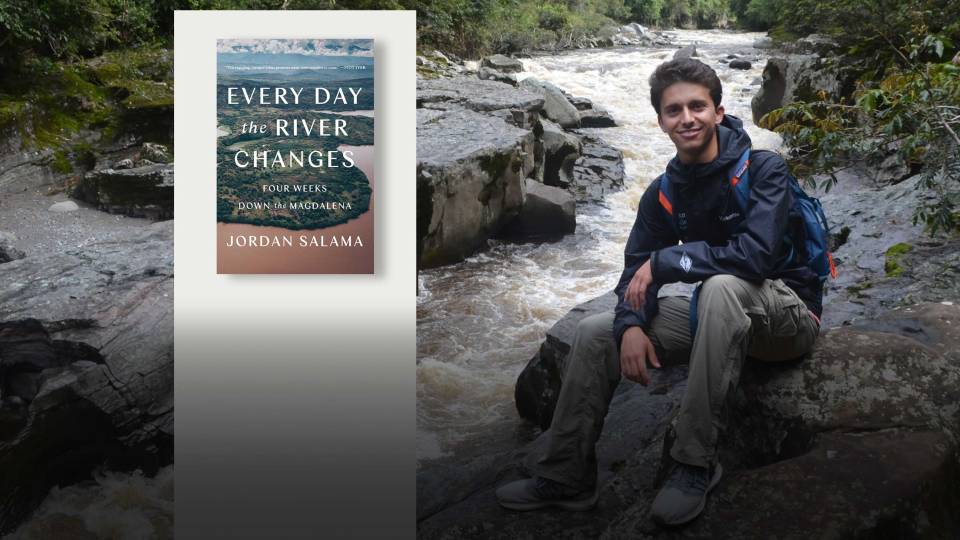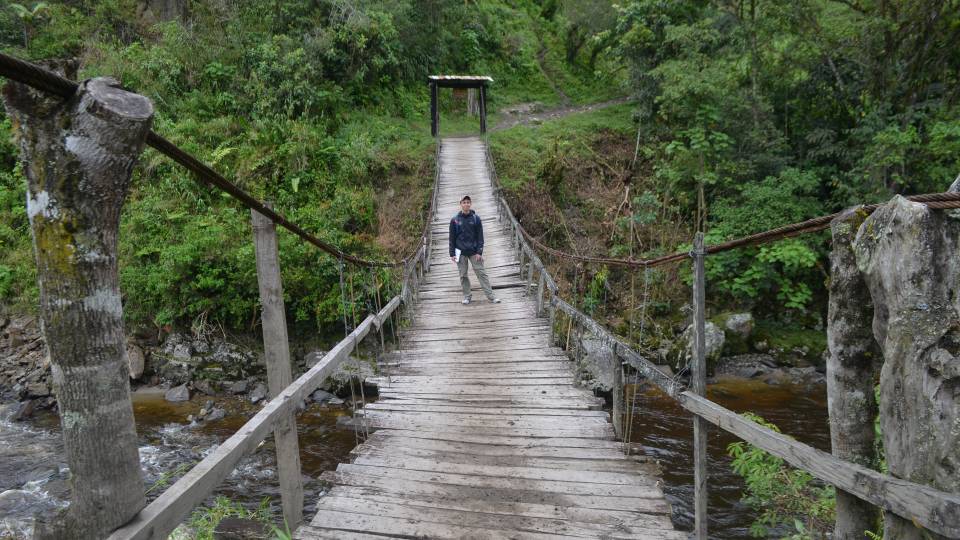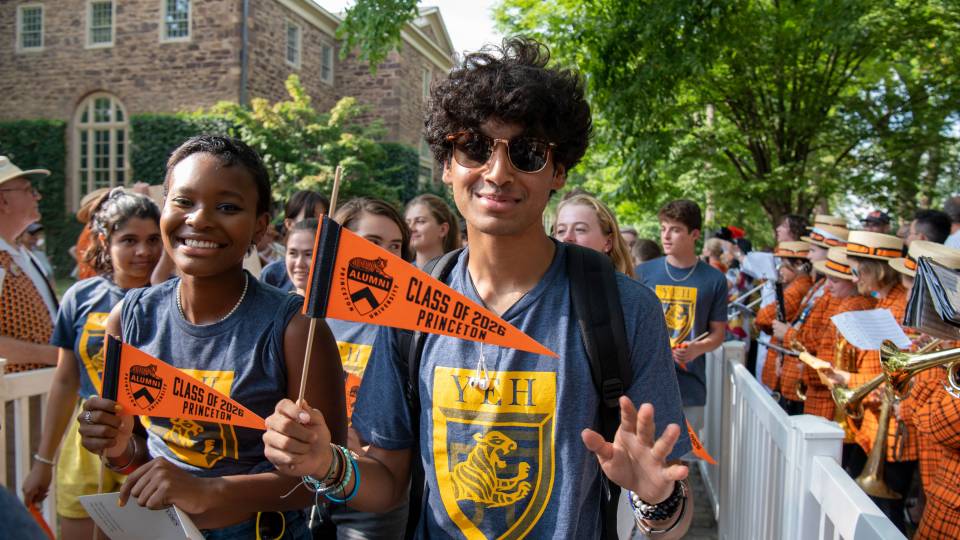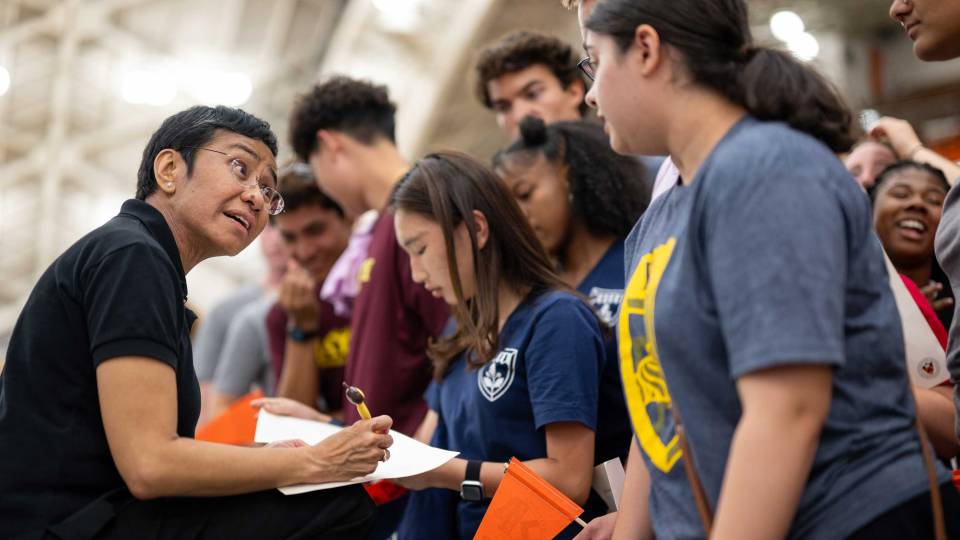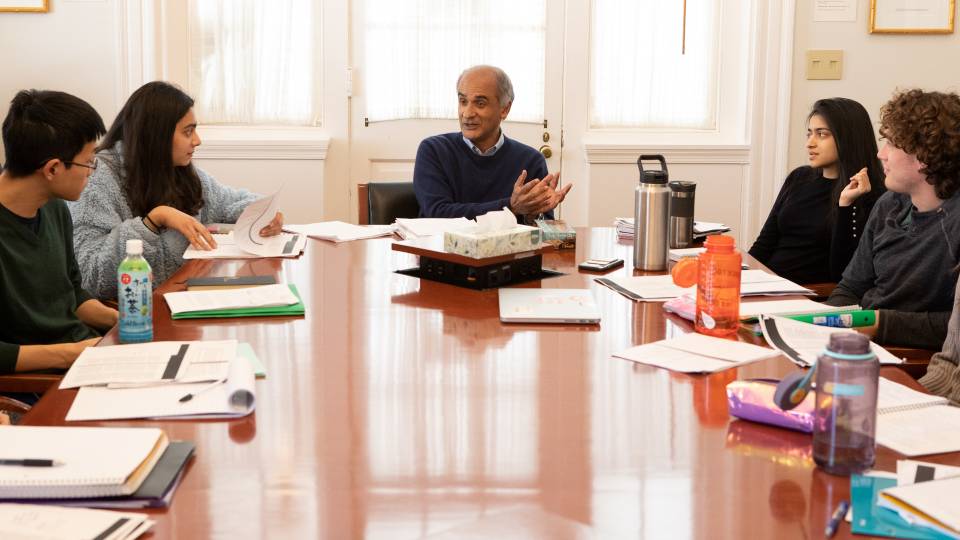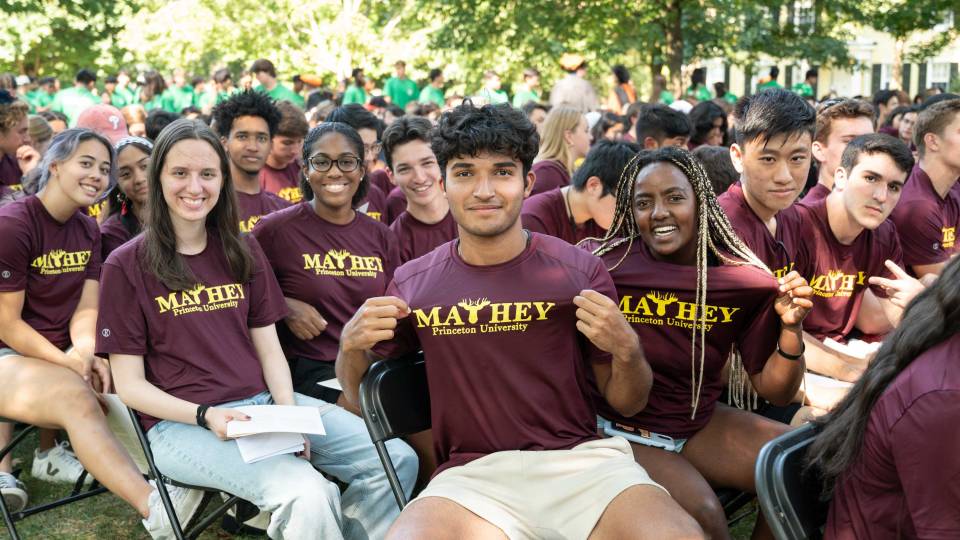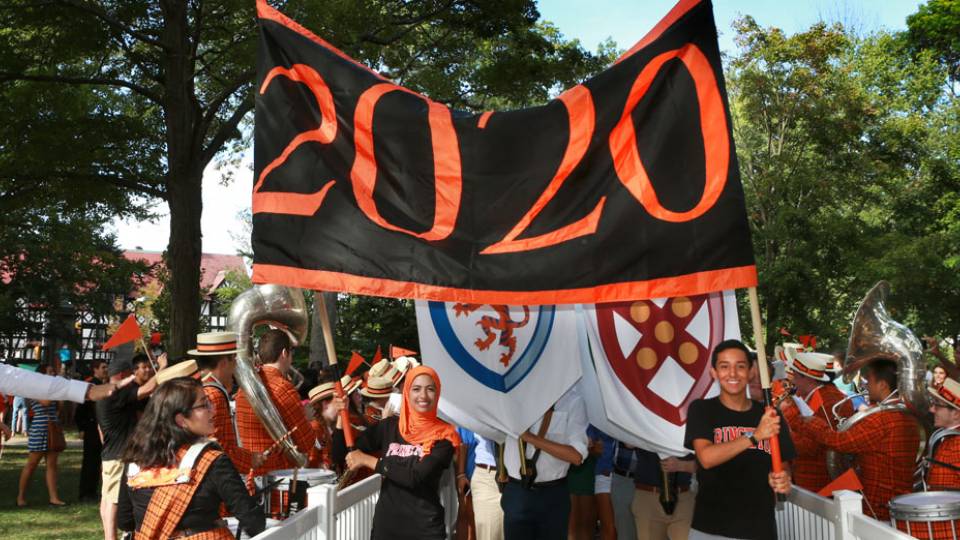Author and Class of 2019 graduate Jordan Salama (left) spoke with President Christopher L. Eisgruber during the Class of 2026 Pre-read Assembly on Sept. 4. The Pre-read is a Princeton tradition where incoming students read a different book each summer and discuss the work with its author during Orientation.
This summer, 1,500 Princeton first-years read alumnus Jordan Salama’s celebrated travelogue, “Every Day the River Changes: Four Weeks Down the Magdalena.” Earlier this week, the Class of 2026 had the chance to hear directly from Salama at the annual Pre-read Assembly during Orientation.
"At a place like Princeton you are in a very unique and privileged position to be able to follow these threads of passion that are exciting to you," Salama told students seated in Jadwin Gymnasium on Sunday, Sept. 4. "I want everyone to think about how you can create those little moments of beauty and passion in your own communities that have impact, and bring that to your experience here and also after you leave Princeton."
Salama, a Class of 2019 graduate, spoke in conversation with President Christopher L. Eisgruber, who began the tradition of selecting a different book each year as a way of introducing incoming students to the intellectual life of the University. Pre-read book topics have included freedom of speech, supporting first-generation college students, and how to live a meaningful life.
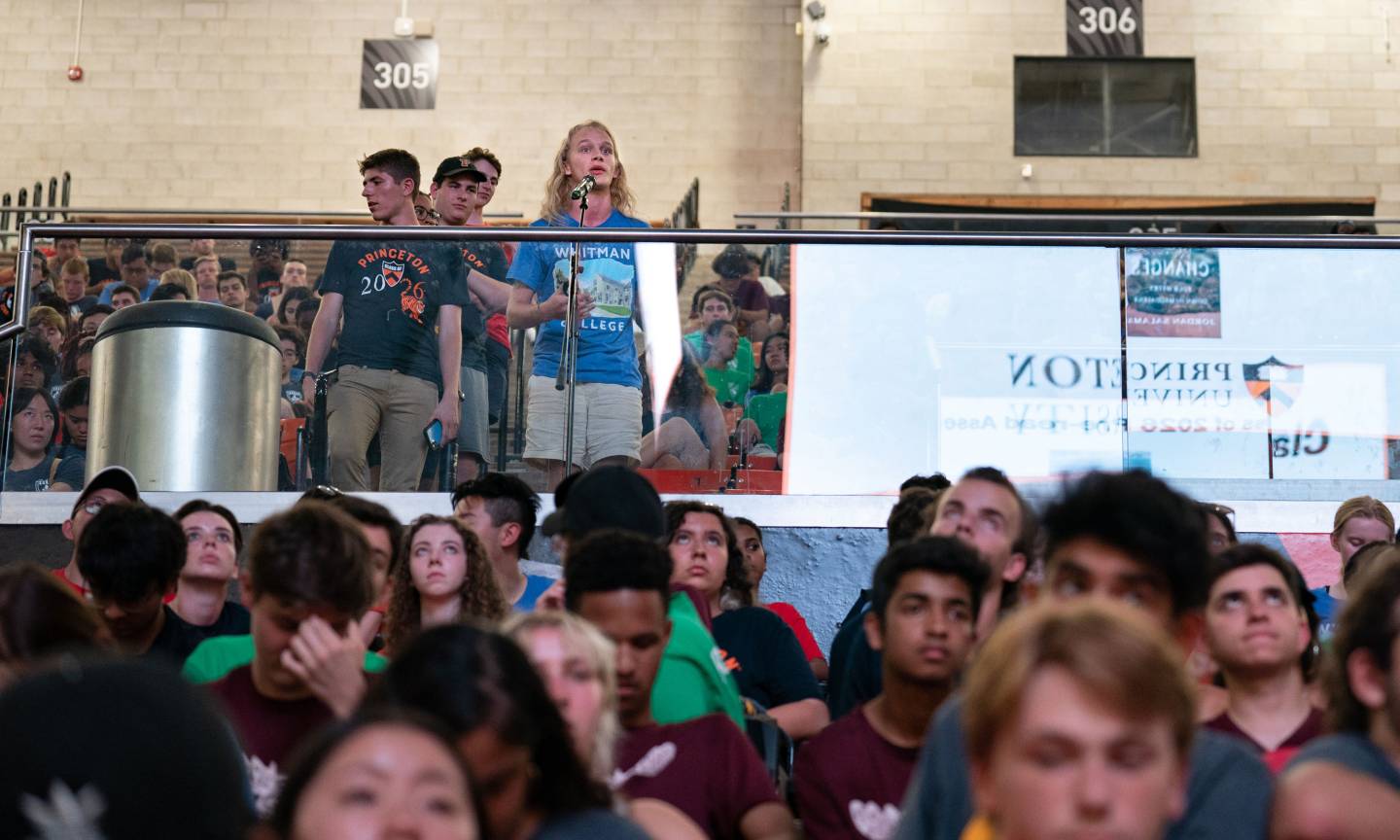
First-year students lined up at microphones in Jadwin Gymnasium to ask Salama about his celebrated travelogue "Every Day the River Changes: Four Weeks Down the Magdalena."
Eisgruber said he hoped students were inspired by Salama’s physical journey down Colombia's Magdalena River as well as by his intellectual journey from undergraduate researcher to published author in just a few years. "Every Day the River Changes" was named a Kirkus Best Nonfiction Title of 2021. The book was originally written as Salama’s senior thesis and connected his studies in Spanish, creative writing, environmental studies, journalism and Latin American studies.
Salama described his academic path at Princeton as nonlinear — in a good way. He explored various subjects and classes, and took advantage of different international experiences and research opportunities offered through the University. He considered becoming a television writer until taking the class "Creative Nonfiction" with Pulitzer Prize-winning author John McPhee, senior fellow in the Program in Journalism.
"Through the conversations with Professor McPhee -- who was interested in a lot of the same things I was, which were stories about people, nature, history and culture -- I realized there is a career that can be made out of having these kind of encounters and writing these kind of stories down as a way of learning about the world," Salama said.
Salama first visited Colombia for a summer internship after his first year at Princeton and returned after his junior year to spend four weeks traveling down the “mighty Magdalena.” The river is considered Colombia’s most important river culturally, socially and economically, and the book centers on the stories of the people Salama met along his journey.
“So much of this book is about having these conversations with empathies and respect ... How did you approach people across so many different kinds of divisions?” Eisgruber asked Salama.
"I wanted to learn and I wanted to have conversations, but I also wanted to live life with people like they were living," Salama explained. "I did things like play music, play soccer with people, watch soccer with people, talk about interests that we had in common. By starting the conversation with those things ... that opened the door to later on have these conversations that were a little bit deeper and shed more light on the way people lived. They trusted me, and I trusted them."
In learning the stories of strangers, Salama also learned about himself. "There is value in getting out and having conversations with people as a way of understanding yourself," he said.
Ultimately, Salma said his book is about what can emerge from conversations grounded in empathy and respect.
"So much of this book is about the value of having these kinds of conversations with people," he said. "How we can cross these divides or different lived experiences through first starting out with common experiences and then, perhaps, broadening out to more difficult topics.”
Students in the audience also asked Salama a range of questions about the challenges of traveling by himself in Colombia, his process as an interviewer and writer, and his advice for Princeton undergraduates. Madeline McDonald, a first-year from California, wondered how Salama decided to expand his senior thesis into a book.
"I wrote the thesis with that in mind," Salama said. "One of things I want everyone to take away from this conversation is there are a lot of people who come out of Princeton who turn their theses into real world things. It doesn’t necessarily have to be a book. There are people who start companies with their thesis or use it as a starting point to pursue a Ph.D. There are lots of ways to use your thesis to have greater meaning."
The conversation between Salama, Eisgruber and the Class of 2026 will continue over the fall during smaller roundtable discussions in the residential colleges. A recording of the Pre-Read Assembly is available on the Princeton University Facebook page.
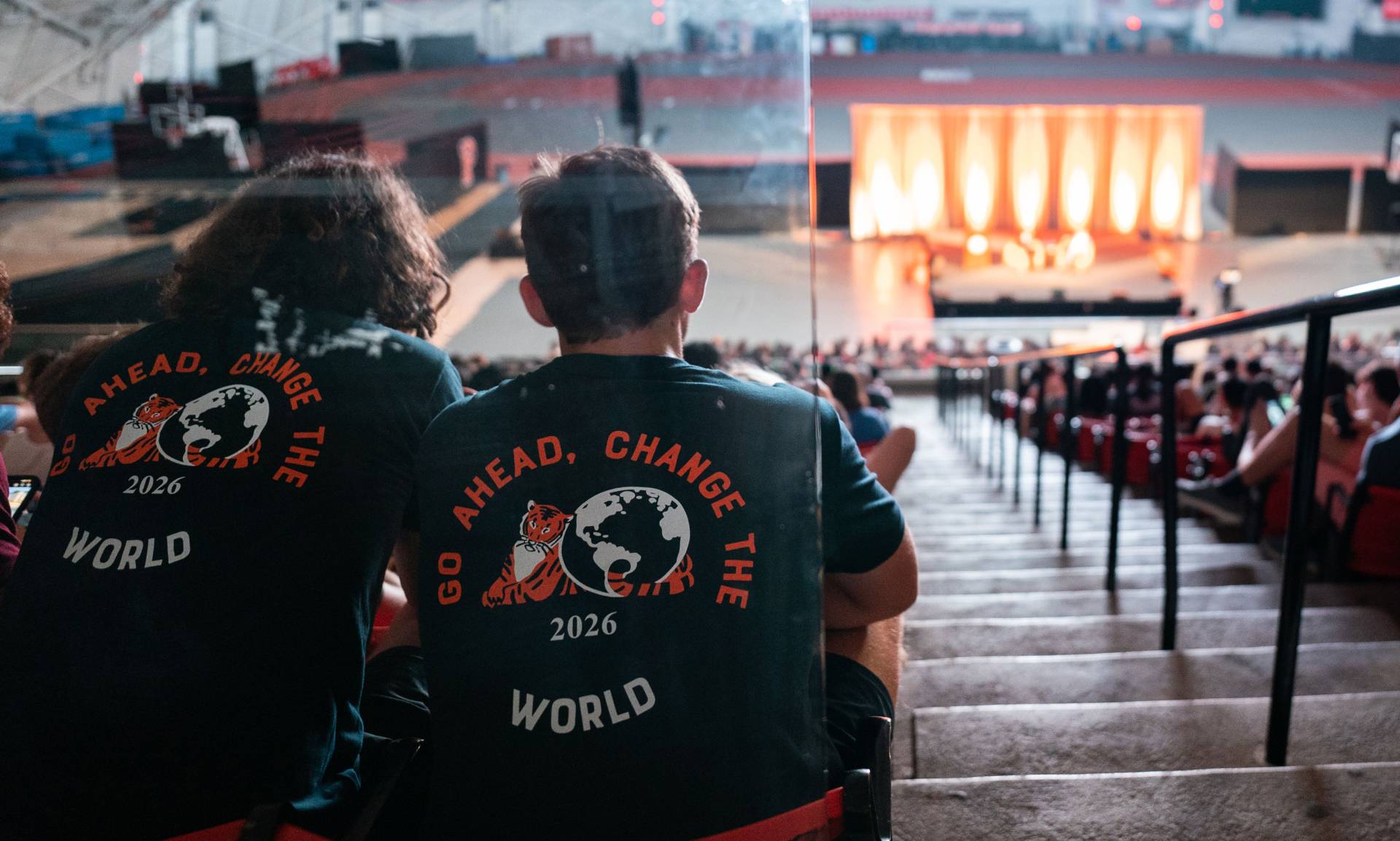
First-years attend the Pre-read Assembly while wearing their Class of 2026 t-shirts that read "Go ahead. Change the world." Salama encouraged the students to explore the world and follow their passions.
